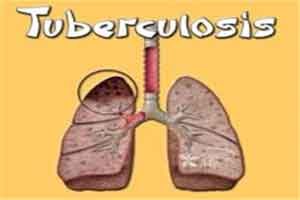- Home
- Editorial
- News
- Practice Guidelines
- Anesthesiology Guidelines
- Cancer Guidelines
- Cardiac Sciences Guidelines
- Critical Care Guidelines
- Dentistry Guidelines
- Dermatology Guidelines
- Diabetes and Endo Guidelines
- Diagnostics Guidelines
- ENT Guidelines
- Featured Practice Guidelines
- Gastroenterology Guidelines
- Geriatrics Guidelines
- Medicine Guidelines
- Nephrology Guidelines
- Neurosciences Guidelines
- Obs and Gynae Guidelines
- Ophthalmology Guidelines
- Orthopaedics Guidelines
- Paediatrics Guidelines
- Psychiatry Guidelines
- Pulmonology Guidelines
- Radiology Guidelines
- Surgery Guidelines
- Urology Guidelines
Rapid Test for MDR Tuberculosis: NEJM

A new rapid molecular test has shown the ability to detect, with reasonable certainty, mutations associated with multidrug-resistant tuberculosis (MDR-TB), an international team of researchers reported today in the New England Journal of Medicine.
Fluoroquinolones and second-line injectable drugs are the backbone of treatment regimens for multidrug-resistant tuberculosis, and resistance to these drugs defines extensively drug-resistant tuberculosis. Yingda L et al. assessed the accuracy of an automated, cartridge-based molecular assay for the detection, directly from sputum specimens, of Mycobacterium tuberculosis with resistance to fluoroquinolones, aminoglycosides, and isoniazid.
The researchers conducted a prospective diagnostic accuracy study to compare the investigational assay against phenotypic drug-susceptibility testing and DNA sequencing among adults in China and South Korea who had symptoms of tuberculosis. The Xpert MTB/RIF assay and sputum culture were performed. M. tuberculosis isolates underwent phenotypic drug-susceptibility testing and DNA sequencing of the genes katG, gyrA, gyrB, and rrs and of the eis and inhA promoter regions.
It was found that among the 308 participants who were culture-positive for M. tuberculosis, when phenotypic drug-susceptibility testing was used as the reference standard, the sensitivities of the investigational assay for detecting resistance were 83.3% for isoniazid (95% confidence interval [CI], 77.1 to 88.5), 88.4% for ofloxacin (95% CI, 80.2 to 94.1), 87.6% for moxifloxacin at a critical concentration of 0.5 μg per milliliter (95% CI, 79.0 to 93.7), 96.2% for moxifloxacin at a critical concentration of 2.0 μg per milliliter (95% CI, 87.0 to 99.5), 71.4% for kanamycin (95% CI, 56.7 to 83.4), and 70.7% for amikacin (95% CI, 54.5 to 83.9). The specificity of the assay for the detection of phenotypic resistance was 94.3% or greater for all drugs except moxifloxacin at a critical concentration of 2.0 μg per milliliter (specificity, 84.0% [95% CI, 78.9 to 88.3]). When DNA sequencing was used as the reference standard, the sensitivities of the investigational assay for detecting mutations associated with resistance were 98.1% for isoniazid (95% CI, 94.4 to 99.6), 95.8% for fluoroquinolones (95% CI, 89.6 to 98.8), 92.7% for kanamycin (95% CI, 80.1 to 98.5), and 96.8% for amikacin (95% CI, 83.3 to 99.9), and the specificity for all drugs was 99.6% (95% CI, 97.9 to 100) or greater.
It was therefore concluded that this investigational assay accurately detected M. tuberculosismutations associated with resistance to isoniazid, fluoroquinolones, and aminoglycosides and holds promise as a rapid point-of-care test to guide therapeutic decisions for patients with tuberculosis. (Funded by the National Institute of Allergy and Infectious Diseases, National Institutes of Health, and the Ministry of Science and Technology of China; ClinicalTrials.gov number, NCT02251327.)
According to WHO estimates, there were 480,000 new cases of MDR-TB in 2015, and a recent report in The Lancet Respiratory Medicine estimated a mortality rate of around 40% for MDR-TB patients. WHO officials have identified the development of rapid molecular tests, along with immediate access to effective, high-quality treatment, as high-priority actions for addressing the MDR-TB crisis.
Next Story
NO DATA FOUND

Disclaimer: This site is primarily intended for healthcare professionals. Any content/information on this website does not replace the advice of medical and/or health professionals and should not be construed as medical/diagnostic advice/endorsement or prescription. Use of this site is subject to our terms of use, privacy policy, advertisement policy. © 2020 Minerva Medical Treatment Pvt Ltd